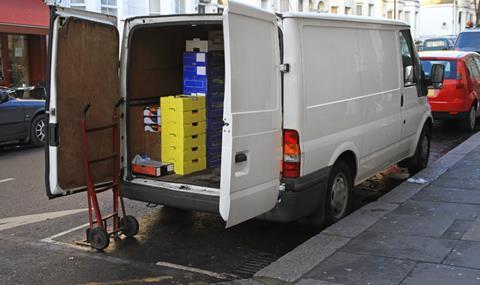
The boom in home deliveries is a huge issue affecting the nation’s health and must be dealt with, according to an expert giving evidence to MPs on the joint committee hearing into air quality.
Speaking to MPs from the Environment, Food and Rural Affairs Committee; Environmental Audit Committee; Health Committee; and Transport Committee; Stephen Holgate, clinical professor of immunopharmacology at the University of Southampton, issued his warning after the chancellor’s decision not to raise fuel duty or increase VED for CVs.
“Mr white van man is the one area [in terms of pollutants] that is going on increasing as more people shop through the internet.
“It’s a big issue and needs to be dealt with. No one is criticising the van, it’s what they are burning while delivering their goods that’s the problem,” he said, adding electric vans akin to London’s move towards electric taxis would be great.
London mayor Sadiq Khan also told the committee members that the T-Charge introduced in October was a loss-maker for TfL but important in changing behaviour and a precursor to the Ultra Low Emission Zone (ULEZ).
“The ULEZ will initially costs us over time it will bring in revenue and we’ll ring fence that and won’t spend elsewhere,” said Khan.
Khan claimed businesses were supportive of the earlier ULEZ start date, which had been consulted on extensively and had come forward by 17 months. He said TfL would consult on extending the zone to all of London for HGVs shortly.
Khan said the first stage of the ULEZ would likely affect 70,000 vans that aren’t up to the euro-6 requirement, "which is why I’ve been lobbying government for a diesel scrappage scheme.”
The mayor said a targeted scheme to help poorer residents and smaller business would cost the government £500m over two years.
The Improving Air Quality Inquiry is examining whether the government’s revised Air Quality Plan goes far enough to meet legal limits on pollution, which the UK is in breach of.
Ahead of the first session, the inquiry cited a National Audit Office report that claimed 85% of UK air quality zones still exceed legal pollution limits years after deadlines for compliance have passed.














